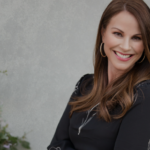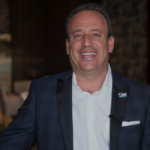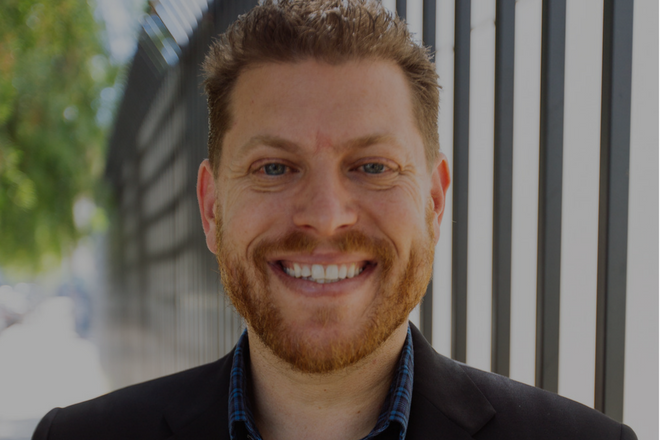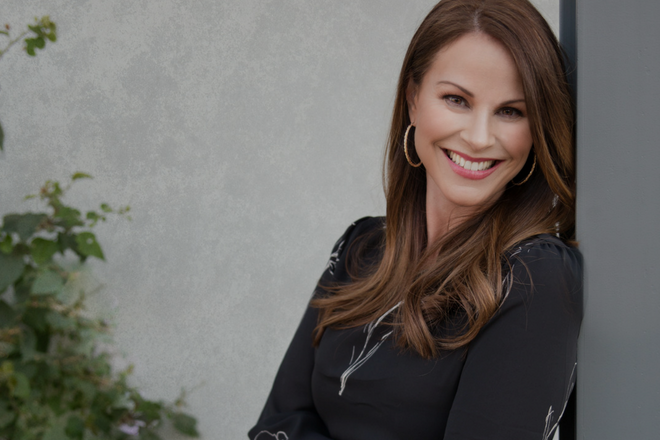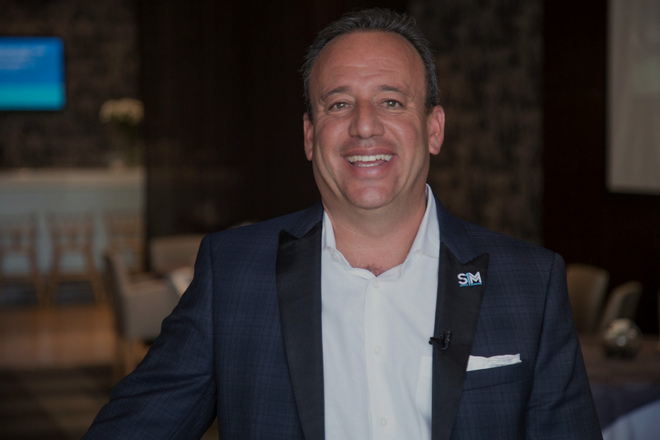“You’ve got to be willing to give people your time and give it for free, without any expectation. People are going to realize that you believe in something. That’s who they want next to them. They want people that believe. They want people who are loyal and they want people who are good people to be around and positive people to be around. The more that you develop that as your reputation, the more that someone does not want to be around somebody that’s negative or annoying or needy or all these characteristics that can complicate relationships.”
Josh Binder – Entertainment & Music Attorney; having patience in your growth; seizing opportunities to create relationships; the changing landscape of the music industry, transparency in the music game; his relationship with Top Dawg & Kendrick Lamar.
Segment 1: (Length :04:00) – General Updates; Introduction to Josh Binder; Starting an office from his apartment; building on relationships; gaining mentors; learning from experience; creating a lasting reputation.
Josh’s finer points:
“So, right out of law school, that’s pretty much when Napster hit. I had interned at Sony Music and you know, right there, that’s when pretty much the industry shrunk and it basically became this burning house and everyone said, ‘Don’t go into the burning house, don’t go into the music business.'”
“And of course me being, you know, a music fan and just being … I mean, that’s all I ever wanted to do. I wanted to be in the music business. And, uh, and, you know, I said, all right, I’m running right toward the fire. So about 17 years ago I decided to open up my own firm right out of law school, which was a very foolish, some might say, or ballsy decision.”
I ran that firm for 11 years, and found people on the streets and found people that I liked and, where is a good Jewish kid supposed to find clients, but you in hip hop? uh, so, you know, I literally ... I found a way to create value for people.
“And by doing that, they wanted to keep me around. For the next 11 years, I built up a practice and built up a practice and finally was able to start generating some business. A decade in, in I started to have some bigger clients. Law firms were all asking me and enticing me to try and join their firms. I picked David Shapiro and I ran with them for five years.'”
“It was a great experience and you know, I realized at a certain point that as you build a business and you build the brand, it’s very important to have the power of, of the company at your fingertips.”
“So recently I partnered up with two guys, Paul Rothenberg and Jeremy Mohr and you know, we’re all in our forties and I think what we’ve done recently is unlike anything that’s existed in the music space because we’re three 40 year olds that have opened up kind of a new brand of a law firm, right?”
“Most of the boutique firms in the United States are kind of either run by the generation before us or they’re really massive places that are a part of massive firms. And so our approach right now is to really be music fans first and know things like Spotify and Apple and who runs them and playlists and New Music Friday and things like that.”
“And so we decided to come together and now we have a seven person law firm. We’re in Beverly Hills and New York and Miami. So it’s an exciting venture that … you never can stay comfortable. So this is my new new method of getting out of my comfort zone and starting something new.”
my entrance into the music business is entirely through the back door. As soon as I landed back in Los Angeles from being in San Francisco for three years where I went to law school, I applied to every law firm. Right?
“And of course I went to good schools. I got decent grades and you know, I figured I came from good pedigree. I was going to get a job. That did not happen. I mean I still have a stack of rejection letters from every law firm that, you know, it was like no thanks. There’s nothing I could do to help you, come back later. We’ll do an interview. But literally it was just like there was no opportunity.”
“So, either I could fold and do insurance defense, which is not what I went to law school to do. I decided to say fuck it and just open up a law firm. I literally started running a law firm right out of my apartment.”
“I would get artists or find whoever would hire me that I liked and I would start building some value for them. I would figure out ways to bring them value in whatever way I could, whether it was contractual or whether it was relationships or whether it was, you know, trying to find them a manager or find them an agent or whatever I could do to help build their business, I did.”
“So those were very meager times that, you know … I remember, my friends, you know, recall certain groups and we’ll still talk about them, you know, I mean, I poured hours and hours and hours, hundreds of hours into things that never went anywhere.”
“And that taught me a lot. It taught me a lot about drafting, right? So, you know, I would do a deal with someone, then all of a sudden I’d find myself on a deal where the other guy on the other side of the deal was a very experienced lawyer.”
“And in the process I found a few mentors, one on the record side, this guy named Andrew Ross who’s actually still head of business affairs at Columbia records. And another guy named Gary Greenberg, who’s still a practicing lawyer and I made them my friends.”
“They are my friends, you know, I’ve known them for both 20 years, but I learned through them and figured out a way to grow my knowledge base and in turn did things … you know, I would help them in whatever way I could.”
“So through that process I was able to get on my feet and learn it, you know, kind of fake it until you make it, you figure out how to build value and how to service legally clients. And once you start doing that, the word spreads, good things happen when you do good by people and when you build a reputation, and you’ve done it for 15, 20 years, people start taking notice.”
I have very long term relationships with my clients for good reason. And they know, I know them very well and they know me very well. And oftentimes you don't even need to communicate on what my client is going to do. I know what my client's going to do, because we've been building businesses for decades.
Segment 2: (Length :08:00) – Talking with Josh Binder; transparency in the music game; his relationship with Top Dawg & Kendrick Lamar; learning as much as possible to the music industry.
Josh’s finer points:
“If you’re really passionate about something, you’re going to go ahead and your actions are going to show a lot about what you’re actually passionate about. You can’t tell me that you wanna be in the music business and not know what’s going on in the industry of music.”
“You should be able to rattle off the president of every record company or the chairman of ever publishing company or all the top agents, who the top managers are. You kinda know it when you actually have the knowledge inside you.”
My relationship with Top Dog, we call him Top, is one that follows exactly what I was talking about before, which is a client leads to another client leads to another relationship, so at the time I was representing DJ Quik
“DJ Quik and AMG had a group called The Fixxers, so we did a deal at Interscope for a record, Can U Werk Wit Dat. I can hear it in my head right now, and one of the dudes in … I think the first time I met him I went to one of Quik’s barbecues on some area that I had never been to that I probably shouldn’t have been to, been at at the time.”
“And Top was just some … One of the guys in the crew. He always wore his TD hoodie, and he’s like, “I heard you’re the guy that can help me.” And I said, “Sure.” I didn’t really think that much of it at the time. I think we started with some song deal, and it was for one of his producers. And I did the deal, and he and I kinda made a deal at the time.”
He said he was gonna pay me $1,000 an hour. $1,000 a month, excuse me. And I said, 'Okay. I'll do it. I'll do your work for $1,000 a month.' So three months went by, and he didn't pay me. And then another three months went by, and he still didn't pay me. I was a young lawyer at the time, and I was like, Top, I need to get paid. This is how I live.
“He’s like, “Don’t worry about the money.” So another three months goes by, I still don’t get paid. So I was like, “Top, I can’t continue doing this. Tell me what to do with your files ’cause I can’t work for free.”
“So eventually he finally comes back to me, he goes, “Listen. Stop worrying about the money. One day I’m gonna be your biggest client.” We’re almost 12 years later, and clearly that’s been true.”
“He’s turned out to be, A, one of the smartest people I know. B, one of the most patient people I’ve ever met. And C, loyal to me, loyal to his artists, loyal to anyone that he’s been in business with. I’ve learned a lot from him and the experiences of being in the trenches of deals that started within the world of TD and Kendrick and SZA and all these amazing artists, ScHoolboy Q and such. We’ve gone through battles, and they’re amazing.”
“I can’t describe the stories, but you really learn a lot about someone’s fearlessness and someone’s willingness to believe in their own brand. And when you believe in your own brand, you’re willing to walk away from deals that aren’t perfect, and if they’re not perfect, they’re not right.”
“Well, I think a lot of people have to really be honest with themselves, whether or not they’re trying to be lawyers, managers, artists, or anyone else that’s in this business.”
“There’s so many things you can do. There is an unlimited number of things that you could spend every day trying to learn, trying to … I mean obviously meet people. Go to conferences, go to South by Southwest, go to the Billboard conferences. I could spend the next 10 years continuing to learn about all these different facets of the music business, which I still do, right?”
I'm still 20 years into this business, and I still don't feel like I know everyone and I know everything because it is the youth that has a little bit of an advantage in this game because at 43, I'm still not young. And it's the younger generations that's really driving music and driving these brands that are being built.
“To anyone that’s trying to get into this business, you’ve gotta build a network. You’ve gotta build your network of people that you learn from, people that you trust, people that you can do business with. For an artist, obviously that starts with a manager and an attorney, and you’re building a brand. It’s gonna extend to an agent. It might extend to a record company or a publishing company, but you’ve got to build a real business that has real numbers and not a hope of generating some income at some point.”
“There’s a hope that you’re going to do something, and then there’s a reality that you’ve actually done something that’s tangible. In the current space of music, everything is verifiable, right? We know how many spins you got on Spotify. We know how many Instagram followers you have. We know how many people react to every post that you have, so right now is a very. amazing time in the music business because those that know how to run businesses, everyone knows that they’re running them well.”
“And those that don’t have businesses, everyone knows that they don’t. So you can’t tell me that a song’s a hit when it’s not really a hit. A hit record has half a billion streams or a billion streams. You might think it’s a hit, but at the end of the day, everybody knows what’s going on with an artist. If an artist is selling even 500 person venues across the United States, they’re doing something very special.”
What I recommend to anyone that's trying to get into this business is to be a part of good groups, be a part of ... What I've done in my career is consolidated a lot of my relationships so that I'm doing a lot of business with certain people 'cause it's a faster way of transacting. I don't have to stay on the phone with 15 different managers. I can knock out a lot of business with a relatively few number of people.
“It’s something that somebody told me. “Do you wanna do a lot of business with a few number of people, or you wanna do business with multiple numbers of people? You start to think about efficiencies, and all we have is time. So you gotta be judicious with your time and go to sleep later and wake up earlier and work harder than everybody else. That’s what I recommend people do.”
Segment 3: (Length :10:00) – Having patience in your growth; seizing opportunities to create relationships; the changing landscape of the music industry.
Josh’s finer points:
“The landscape in music right now because record companies aren’t … They’re not developing acts, right? They really expect you to develop yourself, and they get involved when they see something that’s moving.”
“What it’s done over the past decade is it’s made artists have to work a little bit harder and create like I said their own business, but once you start to do all the things that we’re talking about before, building a brand, building a catalog, going out there and performing and actually having a balance sheet that shows that you’re in the black.”
“You start to realize that the value of a record company is … may not be as you once expected it to be, whereas back in the day you might need a record deal to even get off the ground. Now you have a full-fledged business, and now a record company wants to come in and take some of it.”
“One of the examples that I can give you is the Marshmello business. That is a fascinating business, and we’re very counterculture when it comes to doing our deals. Marshmello is not selling to a typical record deal where all of your records are distributed through one distributor.”
“Let’s say it was whatever record company an artist signs to. He, along with his brilliant manager, we’ve done deals so that we have one song that comes out with one company, and then we take our next song and we bring it to another company. And then we take our next song, and literally he is an independent artist using major distribution and major marketing to go ahead and launch his songs, which really he’s in ultimate of what he wants to do and where he wants to be at whatever time. He’s not beholden to any record company.”
“He doesn’t pay anyone a 360. He’s got no exclusivity, and he is probably … I don’t know. Today he might be the seventh biggest artist on Spotify and one of the most robust touring careers in the business. He is very young and the master of his own destiny as really an independent artist. You can never really do that back in the day.”
When you have an act, I know that when we did the SZA deal, we did a very favorable deal because at the time she had been signed to TD for many years and developed, and people knew who she was. TD develops very important artists, and they know when any record company wants to do a deal that they're gonna get something that already has a fan base, that already has ... It's like someone that's worked out for five years. You know that they have the capacity to do what they want, so for the record company, it actually works out because it's not risky.
“They may be giving us a better deal because we’ve earned it, but at the same time it’s not so bad for them because they’re not gonna lose on … They may not make as much money on a particular deal that has leverage, but they’re also not probably gonna lose as much money on something that’s just more risky and doesn’t have the strength behind it.”
“I chose the word patience ’cause there’s so many different types of patience that have to factor in to one’s career. The goal of life is to find something that you are passionate about. Spend your whole life focused on that I think is one of the things that I grew up wanting to find my passion and realizing that at the end of the day, nothing is going to happen overnight.”
“Really, what people need to realize is that you’ve got to hustle. You literally have to … how many breakfasts do you have? How many lunches do you have? How many dinners? How many drinks? How much time do you spend to develop the things within your business that you don’t know that you need to that you don’t know that you need to know? Asking people for advice. Asking people for help. Giving people help.”
“I was actually thinking about this before, before this call, which is my biggest opportunities came from giving people free work. On my own without even being asked. I remember I met a manager. The manager was getting overcharged by another lawyer and I just said “Let me help you. I’m going to do it for free. I just want to start working with you and I don’t want to charge you and we’ll figure out a way to do it.” You look four years later, it’s one of my closest managers and friends. We do a shit pile of business together.”
You've got to be willing to give people your time and give it for free, without any expectation. People are going to realize that you believe in something. That's who they want next to them. They want people that believe. They want people who are loyal and they want people who are good people to be around and positive people to be around. The more that you develop that as your reputation, the more that someone does not want to be around somebody that's negative or annoying or needy or all these characteristics that can complicate relationships.
“My recommendation to anyone that’s trying to get into any business is “You’ve got to hustle. You really gotta put all your effort into whatever. Taking people out for coffee, lunch, dinner, or writing something and giving them a research paper that they didn’t even ask for.”
“When you do that then people start taking notice. It’s almost the same advice as you would give an artist. An artist has to create content that people are going to give a shit about. If you can create content that people care about. If you can create moments, every moment is going to build on the next moment.”
“Then all of a sudden you can trace back how you met this person five years ago and finally five years later it bore some fruit. Actually today I found out one of my artists is opening up for a massive artist. Just invited her to open up on 12 dates, arenas throughout the United States. She’s not as big as he is and it happened because they wrote a song together two years ago.”
“Then six months ago she went to Europe and performed on her own dime, performed with him for four nights. Then all of a sudden, today we find out she’s going to do 12 dates in arenas in the United States, opening up for a massive artist.”
“You have to be willing to be poor at whatever you do knowing that you love it. I had a lot of meager years where I’m just I’m in the trenches building and trying to get by and figuring out how to make ends meet when it just doesn’t happen that you are all of a sudden going to make a shit pile of money because you decided to enter into a business.”
“Every artist’s career is exactly the same thing. Every artist and that’s why artists hopefully tend to keep good teams around them or teams that help build them from the get go is that there’s not a lot of money in the beginning. You are not going to be performing at arenas overnight.”
“Segment 4: (Length :03:00) – Hustler Thought of the Day:
Patience is not about how long you can wait, but on how you behave while waiting.
GENERAL NOTES:
Josh Binder – Entertainment & Music Attorney
Joshua P. Binder is a founding partner at the Beverly Hills office of Rothenberg, Mohr & Binder, LLP, whose client base includes established and developing artists/bands, production companies, producers, and songwriters.
Josh’s practice focuses on securing, structuring, negotiating and documenting business transactions in the music industry.
Josh represents music clients from diverse genres including urban, rock, country, and electronic. Notably, Josh represents Top Dawg Entertainment, which includes artists such as Kendrick Lamar, SZA, Schoolboy Q. Among his roster are DJs Marshmello and Jauz, Latin chart topper Daddy Yankee, and country music artist Cam.
Josh also represents production company Kids at Play, among others at the forefront of digital and social media. Josh is known for his novel approach to deal-making, cultivating brands, and for his loyalty to his clients
Prior to starting Rothenberg, Mohr & Binder, Josh was a partner at Davis Shapiro Lewit for 5 years and ran his own practice for over 12 years
Josh earned his BA in Economics from UCSD and his JD from The University of San Francisco, School of Law.
In addition to practicing law, Josh spends his time with his wife wrangling their 4 young children
Check out Josh HERE | Social for Josh Binder Instagram
###
